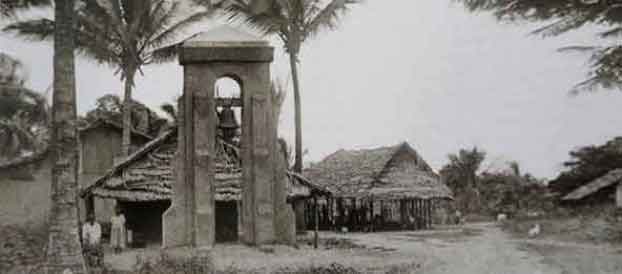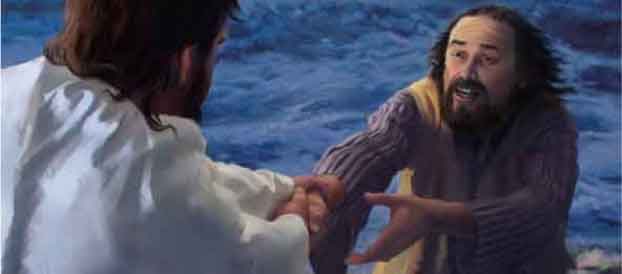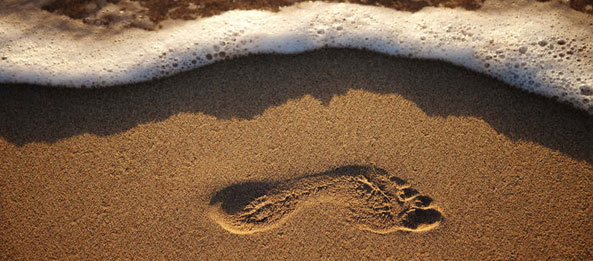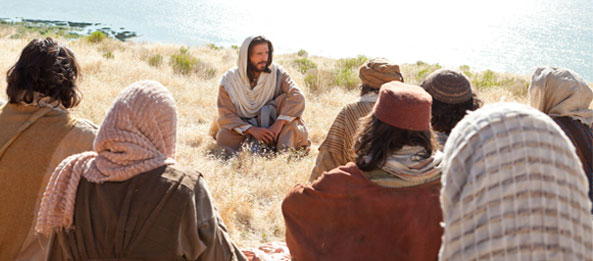Freedom from Slavery
Philemon 10-19
It was a hot humid morning so I was thankful for the sea breeze that wafted through the palms. Things were quiet, just a few kids calling to the Vervet monkeys in a nearby Baobab. Three wildebeest seemed to be keeping an eye on them a few meters away. Suddenly the tranquil scene was broken by distant shouting. The kids turned and the wildebeest bolted as a lone figure appeared running down the twisting footpath from the sea. He headed straight for me and then stopped perspiring and out of breath. It was Charo, one of the Giriama watchmen who had just sprinted two kilometres from the beach. “Ninaona majahazi ya waarabu yanakuja!” (I can see Arab boats coming!) he panted pointing back to where he had come from. Everyone knew the procedure. I turned to Katana beside me and nodded. Eager as ever he jogged down to the bell and soon I heard the clang, clang, clang pounding through the trees. As usual faces started appearing at the doors of all the huts. People grabbed their kids and a few belongings and disappeared into the bush. It was always this way when the Arab Slave Ships arrived. They came again and again hoping to round up villagers but by the time they got here the people were gone. The bell was a great idea.
Kengeleni is Swahili for ‘The Place of the Bell’. The old bell arch can still be seen on the main road travelling north out of Mombasa. It provides a window into the world of African slavery. Similarly the New Testament book Philemon gives us a window into the world of first century slavery. Onesimus was the slave of Philemon, he had recently become a Christian. Paul was sending him back to his master. Was he a runaway slave? We don’t know. But Paul pleads with Philemon to accept him as a brother and not a slave. He goes further and promises to pay for any loss Onesimus had caused to Philemon. We can only wonder how often Paul had to plead with Christian masters as more slaves became believers. The gospel’s challenge to slavery had just begun; it would be another 2000 years before slavery was completely abolished.
Slavery was a large scale horror. People were taken from their families and homes never to return. They were stripped of freedom, value, and identity. They were sold as anyone would market a ‘thing’. Recently a woman whose family has lived in the Caribbean for generations had a DNA test in the hope of discovering which part of Africa her enslaved ancestors were from. The results showed they were Kikuyu (one of Kenya’s biggest tribes). I can only imagine that the solving of her identity was a great healing.
In Romans 6:16-23 Paul uses slavery to distinguish between a life of sin and a life of righteousness. He says we were slaves to sin and now we are slaves to righteousness; we are slaves to whoever we obey. But he is clear that slavery to sin means death, and slavery to righteousness means life. This is because slavery to sin binds and destroys while slavery to righteousness delivers and heals. Sin sneaks up and captures us like a slave trader, while righteousness is like a loud and obvious bell giving us the option of freedom.
In Luke 4: 18-19 Jesus says “The Spirit of the Lord is on me … to proclaim freedom for the prisoners … to set the oppressed free, to proclaim the year of the Lord’s favour (that is the year of Jubilee when all Jewish slaves were freed).” The Holy Spirit is the one who frees from slavery. In 2 Corinthians 3: 17-18 Paul says “Now the Lord is the Spirit, and where the Spirit of the Lord is, there is freedom” – that is freedom on the inside. This is important; we can be free on the outside and slaves on the inside. When Jesus cast out demons people were set free on the inside. Their bonds were broken and their enslavers fled.
The same Spirit that frees also gives us a new identity for Paul says “The Spirit you received does not make you slaves, so that you live in fear again; rather, the Spirit you received brought about your adoption to sonship.And by him we cry, “Abba,Father.” The Spirit himself testifies with our spirit that we are God’s children (Romans 8: 15-16). More than this the Spirit empowers us to be ambassadors of God’s Kingdom for Jesus said “You will receive power when the Holy Spirit comes on you; and you will be my witnesses in Jerusalem, and in all Judea and Samaria, and to the ends of the earth” (Acts 1:8).
In Galatians 5:1 Paul says “It is for freedom that Christ has set us free. Stand firm, then, and do not let yourselves be burdened again by a yoke of slavery.” Here Paul is warning those who are free in Christ not to be enslaved again. The community that used the warning bell in Mombasa were a community of freed slaves; people that had been enslaved once and didn’t want it happening again. In effect the bell’s warning was “Don’t be enslaved again!” And that’s a good message to all who have been set free in Christ.







